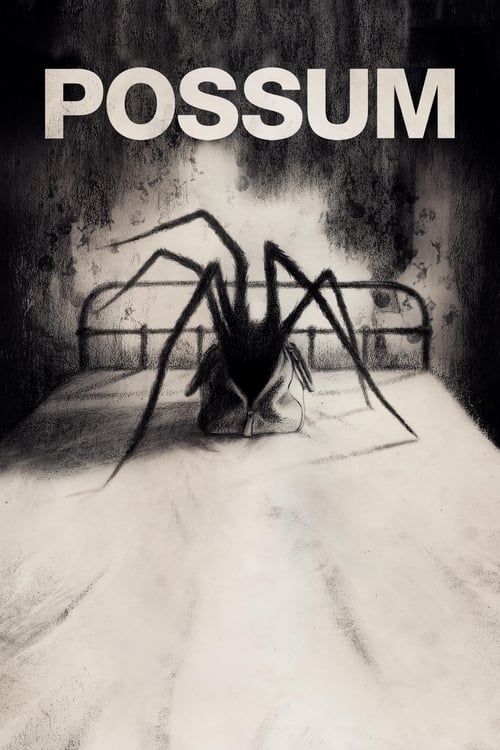Possum – Film Review
Published January 28, 2024

Horror movie enthusiasts seeking a spine-chilling film which skilfully combines suspense, fear, and eerie atmospherics can add Possum to their list. This movie doesn’t merely invoke cheap scares or gory images but unfolds an intensely disturbing narrative designed to evoke anxiety and keep you hooked till the end.
Written and directed by Matthew Holness, a notable comic actor turned filmmaker, Possum deftly ventures into the uncanny realms of the psyche, proffering the unsaid dread which instills a persisting sense of terror. Unlike traditional horror films with an onslaught of ghouls, Possum veers more towards the psychological horror genre, opening a gateway into the terrifying mind of the protagonist.
Sean Harris stars as Philip, a disgraced puppeteer with a turbulent past who returns to his gloomy, dilapidated childhood home. Struggling with past traumas, he grapples with an unsettling spider-like puppet ‘Possum,’ symbolic of a hideous, lurking guilt that Philip cannot shake off. Harris’s stellar performance offers an absorbing portrayal of the protagonist’s paralyzing fear, augmenting the terror factor.
Philip’s monstrous puppet, exquisitely crafted by puppet-maker Tim Rose, eerily complements the film’s haunting undertones, introducing an aura of impending dread. The sound design contributes to Possum’s spookiness, thanks to the nerve-rattling, high-pitched drones produced by the BBC’s legendary Radiophonic Workshop.
However, Possum might be hard to swallow for some viewers as its visual metaphors and poetic screenplay favor stylistic storytelling over narrative clarity. While the film successfully maintains its spooky aura, it seems a tad indulgent and sparse on critical details, rendering the storyline occasionally difficult to follow.
The grim landscapes of Norfolk’s marshes have been used extensively to enhance the brooding horror atmosphere. Possum pays homage to British films and television of the 70s and 80s, like The Children of the Stones and the infamous public information films, but maintains a distinctly modern undercurrent.
The disturbing figure of Uncle Maurice, masterfully enacted by Alun Armstrong, remains pivotal to the film’s creepiness. Armstrong is particularly noteworthy, delivering a character whose overt charm disguises a deeply malevolent streak. The dichotomy between Maurice’s external joviality and his hidden nefarious intent permeates the film with an inescapable sense of disquiet.
Possum lacks conventionally satisfying narrative closure; instead, it seizes its viewers in a viselike grip, incrementally amplifying the horror as it plumbs the psyche’s chilling depths. This may be unnerving for those looking for a neatly packaged, start-to-end story with closure, but horror aficionados who appreciate layered narratives will relish this trip down the eerie lane.
Visually, Possum appears exceptionally raw and disheartening. The bleak production design and striking color scheme establish a sense of despair that complements Philip’s tortured mindset, effectively portraying a world void of cheer. Simultaneously, Holness’ keen eye for composition amplifies the effect, adding gravity to the film’s disconcerting events.
From the acting to the script, Holness exhibits an intimate understanding of psychological horror’s craft and pacing, sustaining a growing, omnipresent fear. However, he falls short when it comes to character depth. A detailed backstory for Philip and Maurice would have enriched the narrative and elucidated the cryptic scenes.
While Possum may seem stagnant due to its scant dialogues and restrained physical action, its narrative momentum originates from within its disturbing imagery and nuanced symbolism. It’s a tense and claustrophobic piece of cinema, crafted with expertise to continually amplify its creeping dread. Possum engages less with visual horror and more with emotional despair, plumbing the profound depths of fear lodged in human hearts.
However, despite its ingenuity and craft, the film is sometimes mired by an overly slow pace. It requires patience and attention to grasp the subtle clues scattered throughout the narrative. But once tuned in, the eerie charm of Possum holds you captive, instilling a chill that lingers beyond the runtime.
Possum provides a compelling venture into psychological horror. With its deft filmmaking, stark symbolism, and potent sound design, it stands as a haunting exploration of deeply ingrained terror. It deserves praise for its profound characterizations and masterfully disquieting atmosphere, even if it could use a tad more narrative coherence and pace. Nevertheless, it serves as a vivid reminder that our inner demons can be the most frightening creatures of all.
